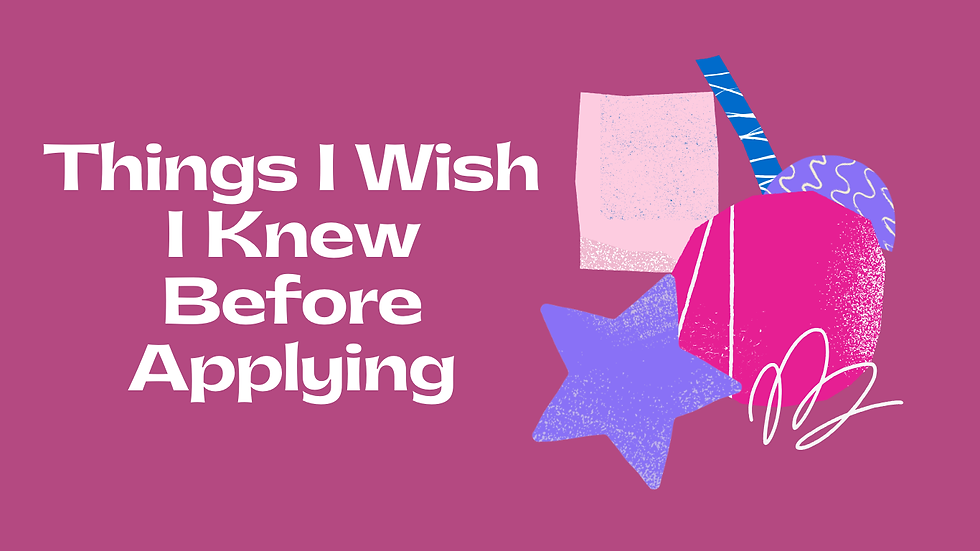So... you want to get into research
- Adrienne Gefre

- Nov 13, 2022
- 3 min read

Written by: Addrienne Gefre
Position: Membership Enrichment
Year/Major: 2nd year, Microbiology (Pre-med)
The summer before I arrived at UF, I knew that I wanted to get involved in research. I had no idea how to do this, and found myself down a rabbit hole of online databases with hundreds of names, email templates, and overall unsure of where to start. After time in two separate research labs and many attempts to find a project I was passionate about, here’s what I learned!
1. Start with what you are passionate about
In an ideal world, your commitment to the research lab or professor you work with will span many years. A long time commitment can help ensure a quality recommendation letter, a helpful mentor, and increase your chances of having a publication.
Just because you do microbiome research now doesn’t mean that you have to follow this trajectory for the rest of your life. But if you are interested in it now, it can be a great place to start. Identify an area you are interested in.
2. Know what you want to do
Most undergraduate research is going to involve some version of tedious work. This might look like lots of excel sheet typing and double checking, data entry, or repetitive work in a wet lab. Either way, know what you are open to doing before you make a commitment. I wasn’t necessarily someone who wanted to spend hours in excel, and if I had communicated that I think some of my experiences would have been more beneficial for me.
3. Use your resources!
UF has a lot of great resources to get involved in undergraduate research. The CUR database literally allows you to search opportunities and find professors to reach out to! UF also provides peer advising to help students get involved in research with flexible office hours in person and online.
https://cur.aa.ufl.edu/research-search/
https://cur.aa.ufl.edu/peer-advising/
If you don’t find an opportunity here that speaks to you, seek out research in a different way. For example, you could search “UF pediatrics faculty researchers” and find the list of MD’s and PhD’s who do research here in Gainesville regarding that topic. Reaching out to people who research in fields you are interested in is a great place to start!
4. Sometimes, you just have to send the emails
I reached a point where I was looking for a specific opportunity that I couldn’t find listed anywhere online. I decided to email faculty at the College of Medicine that published in fields that I was interested in. I only sent one or two of these emails before I found an MD that referred me to the lab I work for now.
When I share this advice with people, they always ask me what they should say! Here is an example of an email I would send.
Dear Professor _____,
My name is Adrienne and I’m a second year pre-med student here at UF. I am reaching out to you because I am interested in your research regarding lactation and breastfeeding experiences in women of color. I was wondering if you currently have a need for an undergraduate student in your lab, or know of anyone in similar maternal healthcare related fields that is looking.
Here at UF, I have previously been involved in research with the ___ lab. I did a lot of data entry, subject communication, and collaborative data analysis here. I feel I have developed some strong skills in these areas that would allow me to contribute to your lab! Some relevant coursework I have completed is STA2023, and the general biology sequence. If you feel like I could be a good fit or know of somewhere I could be, let me know and I would love to discuss further with you! Thank you for your time! Adrienne Gefre University of Florida ‘24 adriennegefre@ufl.edu
5. Don’t be discouraged
Sometimes it will take a week or two to hear back, and sometimes you won’t hear back at all! The other day a professor responded to an email I sent six months ago asking if I was still looking for an opportunity! Keep sending emails and plugging away and eventually you will find the right fit. Research is a rewarding experience when you get to learn about things you are passionate about, and it is one that I recommend everyone pursue!














Comments